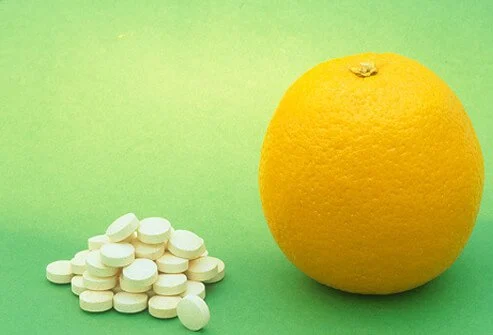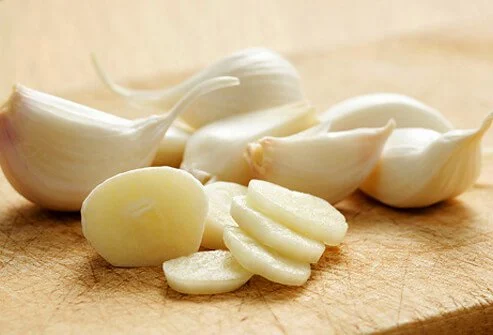#Community Activities
How to Get Rid of a Cold: Natural Remedies

 02/02/2023
02/02/2023
Natural Remedies: What Works, What Doesn’t
Practically everyone will battle colds and the flu at some point in time. The average adult is sick with the common cold (with symptoms like sore throats, coughs, and mild fevers) two to four times each year. Another 15% to 20% get the flu. Since these illnesses are caused by a viruses, they can’t be stopped completely. But you can relieve your symptoms. And since these are such common ailments, there is no shortage of remedies meant to relieve them.
The big question remains—which natural treatments work, and which are a waste of time? Our medical experts review many popular home remedies from zinc and garlic to Echinacea and saline drops, and they offer useful, factual information you can use to keep yourself and your family healthy.
Does Zinc Work?
Zinc is another popular, natural remedy for colds and the flu. In 2014, American consumers spent about $108 million on zinc supplements. But there is real reason to exercise caution when it comes to zinc.
A study out of Great Britain found that zinc supplements in high doses may shorten a cold by almost three days. While other research has not been able to produce the same results, that certainly does sound impressive. In addition, zinc seems to have an antiviral effect, at least in laboratory conditions.
But before you rush out for zinc at the start of your next cold, consider some of the potential drawbacks of consuming zinc in high doses. Zinc comes in two basic forms. It can either be taken orally as a lozenge, syrup, or tablet, or it can be swabbed in the nose (intranasal zinc). The intranasal form is often discouraged because of a scary side-effect—it can cause you to lose your sense of smell, potentially permanently. The Food and Drug Administration outlawed several zinc nasal products after 130 consumers reported a loss of their sense of smell after use.
When taken orally, zinc has several other potential drawbacks. Too much of it can cause copper deficiency, reduce HDL (good) cholesterol from the bloodstream, increase the risk of prostate cancer, and interact with other medications in potentially dangerous ways. Perhaps most hazardous of all, some oral zinc products contain cadmium, which at high doses can lead to kidney failure.
Do Vitamins Prevent Cold and Flu?
When it comes to upper respiratory infections, can vitamins make a difference? It may depend on what you’re taking.
Two vitamins have come to the forefront as possible cold- and flu-stoppers. Both vitamin C and vitamin D have been studied as potentially preventative treatments to these diseases. Both seem to have some effectiveness in certain ways. Whether they improve the immune system’s ability to fight disease is still being studied, but here’s what we’ve learned so far.

Vitamin C
On its surface, vitamin C has a lot going for it. It is a necessary nutrient found in lots of the foods we eat on a regular basis. Those foods include oranges, red bell peppers, kale, and broccoli for starters. It’s found in orange juice, which is also a relatively gentle food for digestive discomfort.
The research for vitamin C for colds and as a remedy for respiratory infections splits along two lines. One line of research attempts to understand whether high doses of vitamin C taken on a regular basis can prevent colds. The second line of research tries to answer whether high doses of vitamin C taken during a respiratory infection may decrease the duration of the disease.
The first question—whether daily, high doses of vitamin C can prevent colds—has come up negative. There seems to be no solid, scientific evidence that vitamin C can keep a cold from developing. One possible exception is in the case of those who experience brief episodes of severe physical exercise or frigid environments—they may benefit from regular, high doses of vitamin C for cold prevention.
The second question—whether high doses of vitamin C can reduce the duration of an illness—is inconclusive, but what evidence is available suggests vitamin C may have some benefit.
Different people seem to respond differently to vitamin C for colds. For some, 1,000 mg seems to be helpful. For others, it takes 2,000 mg. Be careful: at these high doses of vitamin C, some people will experience diarrhea and nausea.
Vitamin D
Vitamin D supplements have been tested to discover if they can prevent colds and the flu. Three large trials have come to contradictory conclusions.
In the first trial, scientists from the University of Otago in New Zealand followed 322 otherwise healthy adults for a year and a half. The study found that people who took vitamin D supplements got sick about as often as people who didn’t. A second trial of more than 2,000 adults ages 45-75 also found no significant results from taking vitamin D supplements for colds.
However, a third trial performed by scientists from McMaster University found more promising results for those taking supplements. In this study, 600 students were tested. Some were given vitamin D, while others weren’t. The students given the extra vitamin D were significantly less likely to contract an upper respiratory tract infection.
You’ll need to work a little harder to find natural food sources for your “daily D,” though some foods are fortified with this nutrient, making it easier to get it into your diet:
- Milk
- Some orange juices
- Fatty fish like mackerel, tuna, swordfish, and salmon (caution; large gamefish like swordfish and large tuna may contain high levels of mercury)
Does Garlic Work?
Although considered tasty by many, the effectiveness of garlic as a cold and flu treatment needs more research. According to the NIH, there isn’t enough evidence to determine if garlic can help prevent these viral sicknesses or relieve their symptoms. Some may find garlic supplements unpleasant due to their tendency to cause bad breath, body odor, and other side effects. Anyone taking blood thinners should be particularly cautious, though. Garlic can interact with anticoagulant drugs, meaning anyone on these drugs ought to discuss the use of garlic with a doctor first.

Do Saline Drops Work?
Saline drops and sprays are effective methods of relieving potentially painful sinus congestion. You can either buy these at the drug store or make them at home. To make your own saline drops, mix eight ounces of warm water with a ¼ teaspoon of salt and a ¼ teaspoon of baking soda. To squirt the mixture into your nostrils, use a bulb syringe while you hold the other nostril closed. To get the most out of this treatment, repeat two to three times before moving on to the other nostril. Be careful to use uncontaminated fresh water (not tap water) to avoid placing infectious agents into your sinuses.
Does Gargling Work?
Not only does gargling work to ease the symptoms of a cold or flu, but it also may be useful in preventing these diseases in the first place.
One of the most unpleasant cold symptoms is a sore throat. Luckily you don’t need anything but salt and water to treat a sore throat. Just mix 1 cup of warm water with 1 tsp of salt. Gargle with the mixture, and spit it back out. This combination works simply and quickly, and is recommended for anyone 8 years old or older.
Preventing cold and flu viruses may be even simpler, according to one study. Researchers followed 387 healthy Japanese adults. Some of the test subjects gargled with plain water, others used water and an antiseptic, and a third group did not gargle at all. After 60 days, those who used water alone were significantly less likely to contract an upper respiratory tract infection. Why water alone was more effective is not known, but the study’s authors point out that water is commonly chlorinated in Japan, which may help explain this.
SOURCE: medicinenet.com
Call Center: 18001155
Email: info@namhapharma.com
Phone: 18001155
(0228) 3644650
How to Get Rid of a Cold: Natural Remedies
 02/02/2023
02/02/2023
#News - Event
Related Stories
 16/05/2025
16/05/2025
Nam Ha Pharma Signs Comprehensive Strategic Partnership With China’s Pharmaceutical Giant Yangtze River
 27/03/2025
27/03/2025
Nam Ha Pharma Joins Hands in the Fight Against Tuberculosis on World TB Day 2025
Other Breaking News
#Green Environment News



